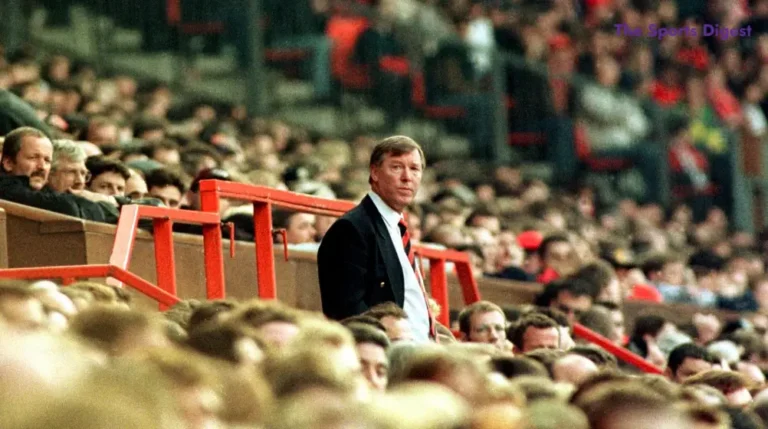Carlos Bilardo: Argentina’s Pragmatic Mind
In the storied history of Argentine football, few figures, like Carlos Bilardo, have sparked as much controversy or commanded as much respect as Carlos Salvador Bilardo. His name has become synonymous with pragmatism, tactical innovation, and what critics call “anti-fútbol” – a philosophy that prioritizes results over aesthetics, practicality over poetry. Carlos Bilardo, a master of pragmatism, revolutionized football with his anti-futbol approach and tactics.
Table of Contents
The Death of La Nuestra and the Birth of Pragmatism
Argentina’s football identity underwent a seismic shift following their humiliating defeat to Czechoslovakia in the 1958 World Cup. This loss marked the beginning of the end for “La Nuestra,” the traditional Argentine style characterized by skill, flair, and artistic expression. In its place emerged a new approach, one focused relentlessly on victory rather than entertainment.
Victorio Spinetto was among the first to champion this philosophical change, emphasizing that winning trumped beauty. But it was Osvaldo Zubeldía who truly institutionalized anti-fútbol through his Estudiantes de La Plata side – and it was under Zubeldía’s tutelage that a young Carlos Bilardo would find his calling.
From Medicine to Madness: Bilardo’s Unlikely Journey
Born in Buenos Aires, Bilardo’s path to becoming Argentina’s most notorious pragmatist was far from conventional. A man of remarkable intelligence, he initially pursued medicine alongside his football career, qualifying as a gynecologist before fully committing to the sport. This duality – the scientific precision of medicine and the competitive nature of football – would shape his coaching philosophy for decades to come.
As a player, Carlos Bilardo began as an attacking midfielder before transitioning to a defensive role at Estudiantes, where he encountered the man who would become his greatest influence: Osvaldo Zubeldía. Under Zubeldía’s guidance, Bilardo transformed into what many called a “chief destroyer” in midfield, embodying the win-at-all-costs mentality that would define his career.
Learning at the Altar of Anti-Fútbol
Zubeldía’s Estudiantes was notorious for its cynical approach to the game. Training was relentlessly repetitive, focused on discipline, aggressive defending, and psychological warfare against opponents. The team pioneered tactical innovations like the aggressive offside trap but became equally known for their confrontational style and gamesmanship that often crossed ethical boundaries.
Stories of Estudiantes’ methods have become legendary: players hiding pins to jab opponents, deliberate time-wasting, and calculated intimidation of referees and rival teams. Far from rejecting these tactics, Carlos Bilardo embraced them wholeheartedly. “The match has to be won, and that’s the end of it,” became his mantra – a philosophy that earned him both trophies and enemies in equal measure.
During his playing career at Estudiantes, Carlos Bilardo was part of teams that won three consecutive Copa Libertadores titles (1968-1970) and the Intercontinental Cup in 1968. When he hung up his boots in 1970, he carried Zubeldía’s doctrines into his coaching career, ready to spread the gospel of pragmatism.
From Club Success to World Cup Glory
After gaining experience coaching Estudiantes, Deportivo Cali, San Lorenzo, and briefly the Colombian national team, Carlos Bilardo received the call that would define his legacy: the Argentina national team job in 1983. His appointment immediately sparked controversy, as he replaced César Luis Menotti – the idealistic coach who had led Argentina to World Cup glory in 1978 playing a style that many considered true to the country’s footballing soul.
The clash between “Bilardisme” and “Menottisme” represented more than just tactical differences; it was a battle for Argentina’s footballing identity. Menotti championed creative expression and attacking flair, while Carlos Bilardo focused on structure, tactical discipline, and results at any cost.
The build-up to the 1986 World Cup was tumultuous. Critics lambasted Bilardo’s pragmatic style and questioned key decisions, including his appointment of Diego Maradona as captain. Behind the scenes, Carlos Bilardo was crafting something revolutionary: the 3-5-2 formation that would maximize Maradona’s talents while providing defensive solidity.
When Argentina triumphed in Mexico ’86, it was a vindication of Bilardo’s methods. The team played efficient, sometimes unspectacular football, relying heavily on Maradona’s individual brilliance. Perhaps fittingly, their quarter-final victory against England featured the infamous “Hand of God” goal – a moment of gamesmanship that perfectly encapsulated the Bilardo philosophy.
Even after winning football’s greatest prize, Carlos Bilardo remained obsessive about tactical discipline. At one training session following their World Cup victory, he reportedly berated his players for forty minutes about a minor defensive lapse – a testament to his relentless pursuit of perfection.
The 1990 World Cup campaign further cemented Bilardo’s legacy. Argentina reached the final again, though their journey was characterized by defensive football and minimal scoring. Their final defeat to West Germany – a match featuring the first-ever red card in a World Cup final – epitomized anti-fútbol at its most extreme.
Beyond the Binary: Understanding Bilardo’s Complexity
The narrative of Argentine football has often been simplified into a battle between good and evil: Menotti’s beautiful idealism versus Bilardo’s win-at-all-costs pragmatism. Yet the reality is far more nuanced. Neither approach exists in its pure form, and both men occasionally borrowed from each other’s philosophies when circumstances demanded.
In later years, even Carlos Bilardo expressed concern about the deterioration of creative play in modern football, suggesting a more complex perspective than his reputation might indicate. Meanwhile, coaches like Marcelo Bielsa have attempted to forge a “third way” – combining tactical discipline with attacking verve.
Others, like Diego Simeone, have been unfairly pigeonholed as Carlos Bilardo disciples based on superficial similarities, ignoring the unique aspects of their coaching philosophies.
The Lasting Impact of a Pragmatic Revolutionary
Carlos Bilardo remains a polarizing figure in world football. To some, he represents everything wrong with the modern game: cynicism, gamesmanship, and results prioritized over spectacle. To others, he’s a tactical genius who understood that football’s ultimate currency is victories, not aesthetic approval.
What’s undeniable is his impact. The 3-5-2 formation he pioneered revolutionized tactical thinking. His emphasis on video analysis and scientific approaches to training and preparation were ahead of their time. Most importantly, his World Cup victory in 1986 ensured that pragmatism would forever have a place in Argentine football’s soul.
Beyond the caricature of the win-at-all-costs coach lies a more complex figure: a doctor who approached football with scientific precision, a tactician who innovated when necessary, and a pragmatist who recognized that in football, as in life, the end often justifies the means.
Have you ever read an article like this?
There are no reviews yet. Be the first one to write one.






